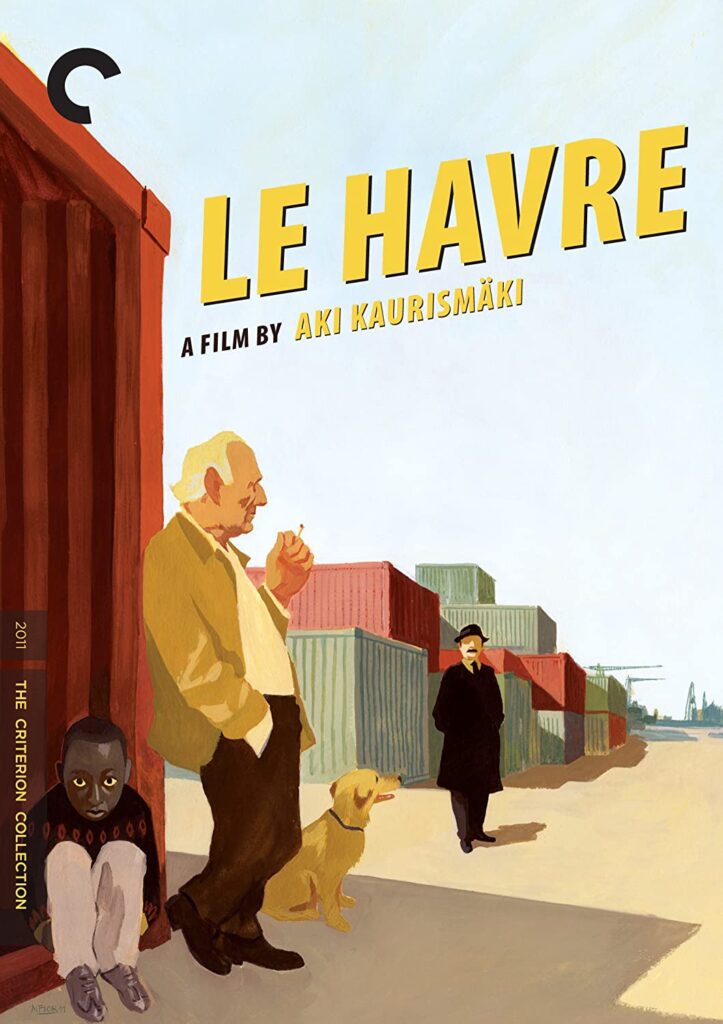
Aki Kaurismäki’s films often require the viewer to get on a specific wavelength in order to appreciate the wry tone he cultivates. His latest, Le Havre, is an excellent place to begin to get accustomed, as Kaurismäki weaves a warm, fantasy-tinged tale that’s easy to appreciate and immensely charming.
Applying a light touch to the knotty issue of European immigration, Le Havre is hardly a substantial take on its subject matter, but it’s not trying to be. Instead, we get a lovely, melancholy story that’s more about mood and characterization than big issues.
knotty issue of European immigration, Le Havre is hardly a substantial take on its subject matter, but it’s not trying to be. Instead, we get a lovely, melancholy story that’s more about mood and characterization than big issues.
André Wilms stars as Marcel Marx, a shoe shiner struggling to make a living in the French port city of Le Havre. Early in the film, his wife, Arletty (Kati Outinen), falls ill with a serious condition, but she convinces doctors to give him a sunnier forecast, explaining that Marcel is just a big kid who couldn’t handle the devastating truth.
With Arletty in the hospital for an extended stay, Marcel finds himself a bit adrift. Elsewhere in town, police discover a misdirected shipping container filled with African refugees trying to make it to London. One adolescent boy, Idrissa (Blondin Miguel), escapes and finds help from Marcel, who hides him from immigration officials. This sets up a showdown between Marcel and the enigmatic Inspector Monet (Jean-Pierre Darroussin), who seems to be determined to root out the boy’s whereabouts and deport him.
The description of Marcel as just a big kid seems to be mostly a throwaway line in the context of the film, but it’s an apt description of the lens the film’s events are viewed through. There’s a sense of childlike wonder, all the way down to the gorgeous art direction and the film’s highly saturated color palette. Marcel is a simple man, protecting a helpless child because it’s simply the right thing to do.
Kaurismäki’s low-key aesthetic results in wonderfully understated performances and character interactions, and his trademark deadpan humor is certainly intact among the ostensibly serious subject matter. But what’s even more remarkable is his precise sense of composition and blocking — artificial and heavily designed, but still retaining a playful sense of dynamic life.
Like the master of film composition Yasujirô Ozu, Kaurismäki is known for making similar films over and over again, but also like Ozu, when images are framed this impeccably, how can repetition seem like a major hurdle to overcome?